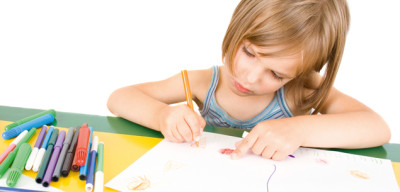Your three-year-old can recite the alphabet…backwards. Your four-year-old is reading Harry Potter. Your seven-year-old powers through complicated maths equations and loves discussing global warming. Welcome to the world of gifted children.
Defining what makes a child gifted can be controversial. Basically, if they have an exceptional ability to perform a skill that most of their peers aren’t able to until they are older (or at all, in some cases), then they may be described as gifted. They may not be good at everything, but in some areas they show extreme talent.
Around five in every 100 Kiwi children are thought to be gifted, although it is not always picked up because it is hard to pinpoint – plus it is possible to be advanced in some areas and struggle with other things. If you suspect your child may be gifted, it is possible to have them tested by an educational psychologist who specialises in this. The New Zealand Association for Gifted Children has more information – see giftedchildren.org.nz.
Knowing your child is gifted can help get them educated at an appropriate level and give them any support they may need. Schools are required to identify gifted children and provide teaching that meets their needs. You could ask your child’s school if they have extension programmes or send children to a centre for gifted pupils.
10 signs your child may be gifted:
They show an interest in their surroundings from an early age
They’re curious and ask a lot of questions
They’re very observant
They have an extensive vocabulary
Their memory is exceptional
They talk earlier than their peers and are articulate
They read earlier than their peers and are often self-taught
They are able to concentrate for long periods of time
They ask thoughtful and unusual questions
They can grasp ideas quickly

Other characteristics of gifted children include having a quirky sense of humour, being extremely sensitive and concerned with fairness. They may also be very creative, have a vivid imagination and prefer to spend time with adults rather than with kids their own age. Being gifted can be a blessing because it can make lots of things in life easier.
Gifted children can sail through school work, get excellent qualifications and land high-flying jobs. They can use their particular talents to make a difference. They may also excel in nonacademic fields such as art and music. But gifted children can also face a host of challenges. While they can be way ahead of other kids intellectually, emotionally and physically they are like everyone else and this varying development can cause problems.
For example, a five-year-old may be reading chapter books, but still throwing tantrums. While other children their age might get away with making a fuss, there can be greater expectations on gifted children to behave in a more mature way because they’re advanced intellectually. At school, they can end up bored because the work is too easy. If they’re not given enough to keep them stimulated, this can lead to frustration and they can actually end up scoring badly in tests and assignments because they can’t be bothered trying. The boredom can also result in disruptive behaviour.
Meanwhile, their tendency to constantly question things can annoy both other children and adults, and people might not understand why they are so sensitive. It’s a misconception that gifted children are “geeky” and socially awkward. Many are extremely sociable and find it easy to make friends because they have widespread interests and can resolve conflicts, thanks to their ability to reason and think things through.
However, some find it hard to make friends their own age because they don’t have much in common. They may choose to hang out with older children on the same intellectual level or even spend a lot of time on their own pursuing their interests. They can be labelled as loners or shy when that’s not actually the case. Others may also find it hard to accept their quirkiness.
If being gifted makes children stand out as being different to their peers, that can lead to emotional issues.
How to help your gifted child:
Be reasonable in your expectations – just because they behave like mini adults when it comes to certain things doesn’t mean they’re able to handle everything like a grown-up.
Keep them stimulated by exposing them to lots of different and challenging experiences. Be prepared for the fact they may need to do lots of extra-curricular activities to keep their brains occupied.
Let them set their own learning pace. If they have particular interests, let them follow those, even if they may seem a bit odd for a child their age.
Let them work on their own if they prefer, but do encourage them to interact with other kids from time to time. Watch out that they don’t become isolated.
Gifted children are often perfectionists and don’t cope well if they make mistakes. Let them know it’s okay if they slip up.
Acknowledge your child for the whole person they are – don’t just focus on their gift.


